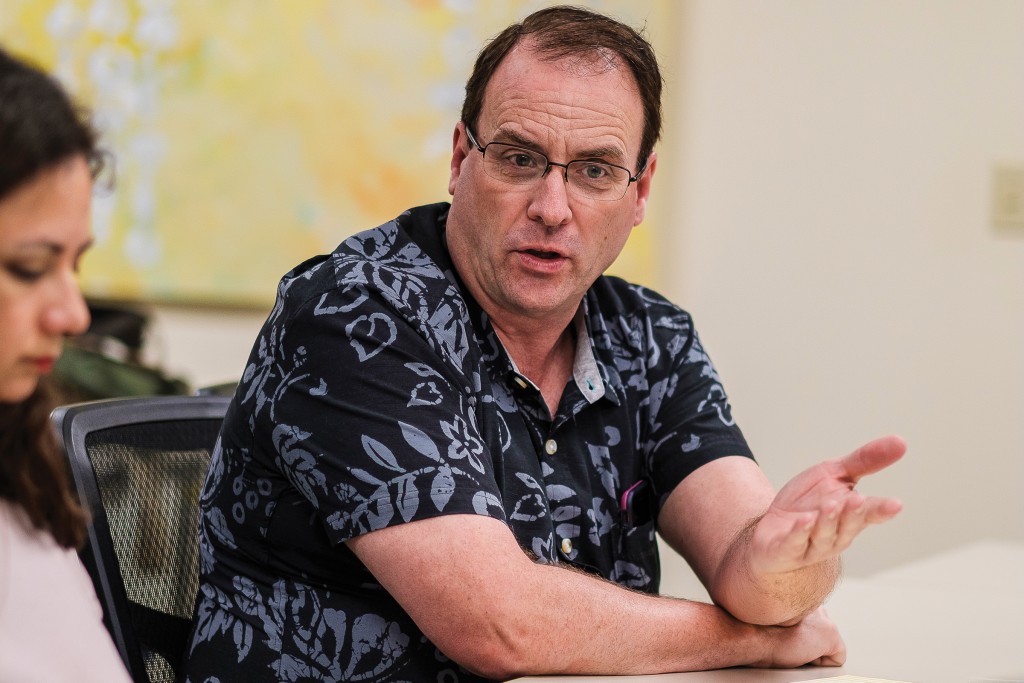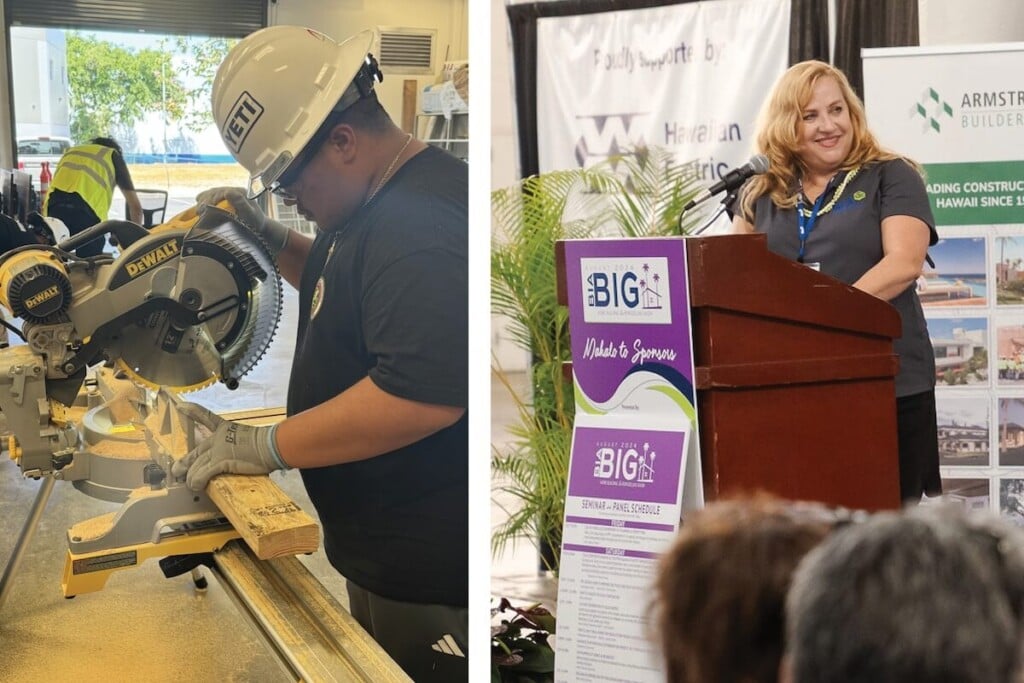8 Hot Topics in Real Estate

 (5)
(5)
Teams
HB: Is there a rise in the use of teams?
Shaw: It really depends on what your definition of teams is. Some people may have an assistant. Would you consider that a team of two people? Some people team up with other Realtors in their office for certain sales and go on their own for other sales.
There is no cookie cutter way of doing it. They can vary with the amount of people, with who gets paid and how much, and who does what. I know one Realtor who has a team of two, and one of the ladies is really good at staging. So, that’s her emphasis.
A team can be two people. A team can be 20 people.
Belew: The book, “The Million Dollar Real Estate Team,” lays out seven layers of a team. But, it depends on the size of the office and the size of the island. I was talking this morning to one of our members who has the team approach in her office and she was saying that Maui’s just not big enough to have seven layers of people on a team. It is really hard to nail down because the definition of team differs from company to company.
HB: How do real estate agents break down the responsibilities?
Young: They develop the business model that works best for them. You can have a licensed assistant, who can do some of the actual activity that requires a license. You can have an unlicensed assistant who is back at the office, just keeping your files straight and reaching out to your clients or things of that nature.
It really does depend on how the agent wants to run their business and service their clientele, and what they are good at. If I’m not good at paperwork, but I’m a great home stager and marketer and I have great relationship rapport, then I may just get someone to assist me to make sure I’ve got that 14-page contract completed. The beauty of being in the real estate industry is that it allows for flexibility.
Shaw: It’s not really different from teams in a regular workplace: You capitalize on people’s strengths and weaknesses.
Costa: If you talk to some of our old mom and pop brokerages that have been around for a long time and are now multigenerational, with children becoming agents along with their parents who are brokers, they would argue they’ve always been a team. So it may just be that the marketing of teams is the trend, but the actual way our agents work together, it has been the case for a long time.
HB: How does the commission get split?
Belew: Totally up to the team leader.
Costa: That is a business decision that varies from company to company. There is no industry standard, no trends.
HB: Does that team structure distort statistics of sales productivity? Let’s say there is a team of four people, but only one or two get the credit on MLS.
Belew: Most Realtors are much more concerned about making a living than they are about getting “credit” for a sale.
(6)
Luxury Sales vs. High Volume
HB: There are agents who created powerful brands by selling luxury properties. Is there a new breed of agents who are also successful, but based on volume?
Shaw: A lot of our properties (on the Kona side of Hawaii Island) are a bit higher priced than on the other side of the island. So, somebody could do 10 times more transactions and still not reach the dollar volume. We have residential communities here that have their own on-site Realtors and somebody comes in and they know about a particular property, which may be $25 million to $30 million. That sale is going to look great on the MLS, but does that necessarily make them a really great agent? Or is it that woman that I spoke about on Alii Drive, going out on her own and doing the marketing and making the sale that way. It’s really hard to compare when you have so many different ways of people selling real estate.
Somebody may be really comfortable working in the neck of the woods they’ve lived in. For them, it’s more the enjoyment of what they are selling than the price range. So, they may have more volume because that’s their comfort zone, that’s where they are.
There is a lot of pressure sometimes when you get into high-end luxury homes. One Realtor told me, “The higher the price, the harder the client. And you’ve got to work really hard, and you’ve got to have a higher threshold of tolerating what people’s expectations are.”
HB: Some high-end clients want to keep their deals private. How do agents feel about not listing their sales on MLS?
Young: I think that ultimately it goes back to the code of ethics that Realtors have to follow – your fiduciary duty to your client. You can’t break laws, but if somebody is asking for privacy, you honor that request.
 (7)
(7)
Real Estate Prices
HB: Critics point out that some luxury real estate is sold to international clients and attribute it as one of the reasons why prices are out of reach for many folks in the state.
Young: I would say that our state is made up of islands that are finite, small pieces of land. And we just have a shortage of property. I think that is what is driving up the prices. The prices, at least on Oahu, are not drastically shooting up. They are steadily increasing. It’s on a steady pace. It is not like back in the day during the years of Genshiro Kawamoto, when prices were totally inflated and you saw these large spikes in prices.
I think the real issue is creating more inventory. Affordable housing is an issue that is happening across the country. Maybe it’s the cost of building materials, the cost of labor, and it’s also land and regulatory issues. All of that contributes to the cost of a home.
HB: The real estate market has been robust for many years. Are we nearing the edge?
Belew: It’s really impossible to answer. Economically, the trend was that the market would go down every eight to 10 years. And that’s not just the real estate market, it’s just the markets in general. We are well beyond this point. So, logic and history say the economic market is going to take a downturn at some point, relatively soon. That’s not a political statement about anything – it’s just the trends.
The market cannot go up forever. Will that hit real estate the way that it did the last time the market went down (during the Great Recession)? Probably not. You don’t expect to have two of those really big sharp, cutoffs back to back. But can I say that with great certainty? No.
Costa: I wish that I could answer that question because we would be so rich.
(8)
Consolidation
HB: Is there significant consolidation among local real estate companies?
Shaw: Recently Century 21 (on West Hawaii Island) was acquired by Windermere. The reason for that was simply because the person who owned Century 21 retired. There is a whole generation of people who started real estate companies and may now be nearing the end of the cycle. Then there are the Warren Buffets of the world who look to get as many national franchises as they can. Yet there is a brokerage here that would be perfect for acquisition for a number of reasons and nobody has touched it.
Costa: There are a lot of new companies opening. We don’t know what the companies of the future are going to look like, with all of our young Millennials getting their brokerage licenses and opening their own offices. I haven’t seen a change in the number of offices within our membership. There have been offices that have merged, closed or been acquired but new offices have opened.
Shaw: I would say if the price was right, probably anything is for sale. Somebody may not have their house on the market, and somebody walks up and says, “I love your house. I will offer you X amount of dollars.”
In West Hawaii, we’ve had more agents in the past couple of years going on their own and doing sole proprietorships because they like the independence.
HB: Final thoughts?
Young: Realtors realize that homeowners don’t have a national association to protect their rights. So it was the National Association of Realtors that really went out there during this tax reform debate to protect homeowners’ rights.
Owning a home creates financial stability, creates stable communities and stable families. So the Realtors stepped up as advocates. And, I think that we’re pleased with the changes that came out from tax reform, because it enables the mortgage interest deduction credit that was there, still enables people to have an incentive to become a homeowner, as opposed to just renting. That’s a huge, huge piece of stabilizing our communities, creating financial wealth. Here in Hawaii, there’s not a lot of financial wealth except for your home.






